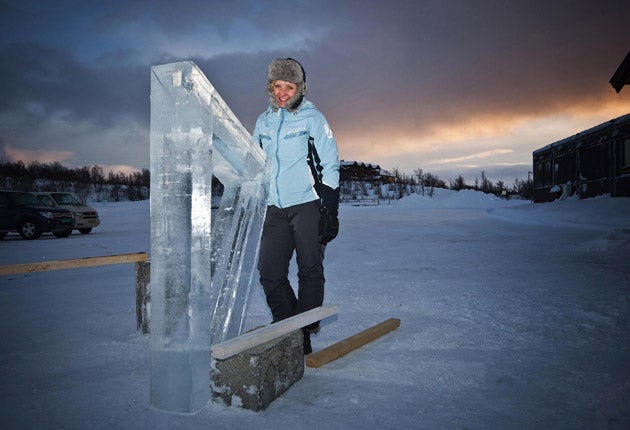The Music That Melted, Radio 4, Tuesday<br/>The Call, Radio 4, Tuesday
Some things just have to be seen to be believed

Your support helps us to tell the story
My recent work focusing on Latino voters in Arizona has shown me how crucial independent journalism is in giving voice to underrepresented communities.
Your support is what allows us to tell these stories, bringing attention to the issues that are often overlooked. Without your contributions, these voices might not be heard.
Every dollar you give helps us continue to shine a light on these critical issues in the run up to the election and beyond

Eric Garcia
Washington Bureau Chief
Speaking personally, I can barely conceive of life without the radio.
Telly, which has been scientifically proven to rot your brain, I could do without (though I probably never shall). It feels treacherous to say it, because radio is so clearly the superior medium (discuss), but just occasionally the thought occurs: I really need to see this. It was an ice guitar that had me pining for visuals, in Radio 4's The Music That Melted, an enticingly dreamlike account of Richard Coles' trip to the Ice Music Festival at Geilo in Norway.
Every January, musicians gather in a carved-out amphitheatre to play instruments chainsawed into existence by an ice-sculpting genius from Connecticut called Bill Covitz. Among his creations are marimbas and xylophones, which I can easily imagine; horns and other wind instruments I can just about see in my mind's eye. But guitars? How does that work? How do the strings twang?
All I can report is that they quite clearly do, the Dutch guitarist Bram Stadhouders coaxing an array of exotic sounds from his, er, axe. And it didn't just sound like a guitar: you could detect the timbre of a harpsichord in there somewhere, and a sarod, and instruments that don't otherwise exist. But as Stadhouders established himself as the world's first ice-guitar hero, I felt I just had to see what was making this glorious racket.
Covitz's advice to Coles was to close his eyes and let the music do the rest. And when Stadhouder combined with a haunting singer and the percussionist and festival guiding light, Terje Isungset, in an improvised piece, it was unearthly and mesmerising. But that only highlighted another inbuilt failing of a programme like this – a radio documentary on a musical subject: there's never enough of the music. Coles (the former Communard and present curate) was an engaging, if slightly bumbling guide – he'd been given a complementary snood by the organisers but hadn't worked out how to extract it from the packet – but in the end it's about the music, maan, and I wanted more.
Whereas Coles's show would make an excellent TV documentary, if something like The Call was on the box it would be padded out with fatuous reconstructions. The second of this series, which is centred on life-changing phone calls, featured Alex Evans, who was at the check-out of a DIY store in Aberystwyth when his friend, Mark, phoned from the Caribbean. On a sinking boat. Evans, a volunteer coastguard, knew the drill and, grabbing the till receipt from his mum and a pen from her handbag, got all the relevant details. Then: "I asked him the name of the boat. He said, 'Titanic'."
It was 31 March, the eve of April Fools', but the panic in Mark's voice, and the wind howling in the background, convinced Alex it was not a hoax and he contacted the Maritime Rescue Co-ordination Centre in Falmouth, where they're used to dealing with incidents across the globe.
As the centre rescue manager observed, sometimes it doesn't go so well. Past failures still haunt him. But, he added: "As long as you have more good memories than bad, I think, on the whole, you're doing a good job."
Join our commenting forum
Join thought-provoking conversations, follow other Independent readers and see their replies
Comments